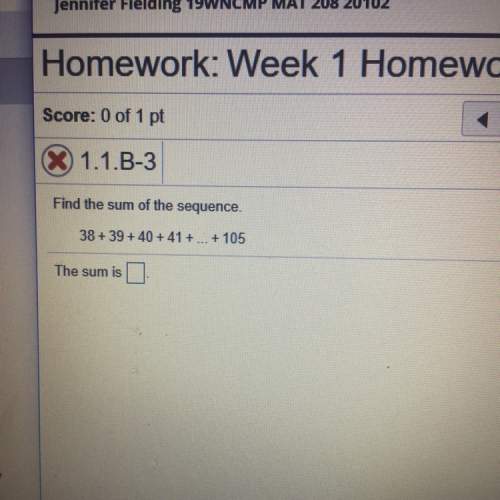
Mathematics, 18.05.2021 21:00 austinwst3
Given $A = (1,1),$ $B = (4,2),$ $C = (3,4),$ and $D = (2,3).$ Find the intersection of the diagonals of quadrilateral $ABCD.$ Enter your answer in the form "$(x, y)$".

Answers: 1


Another question on Mathematics

Mathematics, 21.06.2019 16:30
An automated water dispenser fills packets with one liter of water on average, with a standard deviation of 5 milliliter. the manual says that after a year of operation the dispenser should be tested to see if it needs recalibration. a year later a number of filled packets are set aside and measured separately. it is found that the average packet now contains about 0.995 liters. does the dispenser need calibration? explain your answer.
Answers: 2


Mathematics, 21.06.2019 20:40
Which function has an inverse function? a.f(x)= |x+3|/5 b. f(x)= x^5-3 c. f(x)= x^4/7+27 d. f(x)= 1/x²
Answers: 1

You know the right answer?
Given $A = (1,1),$ $B = (4,2),$ $C = (3,4),$ and $D = (2,3).$ Find the intersection of the diagonals...
Questions

Mathematics, 20.02.2021 09:20

Chemistry, 20.02.2021 09:20



Mathematics, 20.02.2021 09:20



Biology, 20.02.2021 09:20

Social Studies, 20.02.2021 09:20


Mathematics, 20.02.2021 09:20


Biology, 20.02.2021 09:20

English, 20.02.2021 09:20



Health, 20.02.2021 09:30

Mathematics, 20.02.2021 09:30

Mathematics, 20.02.2021 09:30





